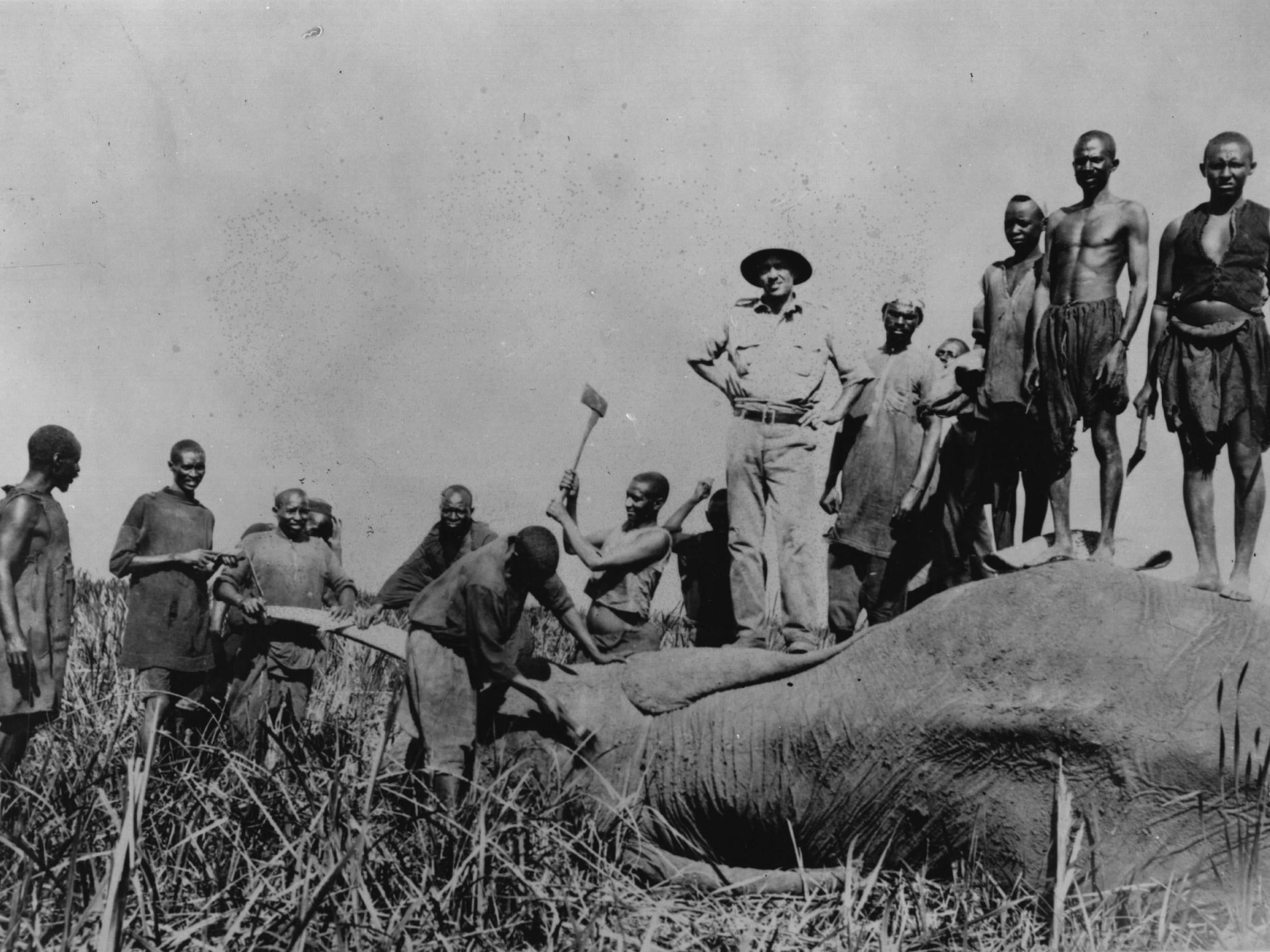Ditch colonial attitudes to elephant hunting, conservationists tell EU
Exclusive: Profiting from creatures is ‘imported Western concept’, say Africans ahead of key vote on extending protection

Conservationists and former senior African politicians are calling on the European Union to drop “colonial” attitudes and vote to save elephants from extinction.
If EU chiefs back conservation steps at a meeting next month, it would represent a U-turn from their historic voting patterns.
An open letter to Jean-Claude Juncker, president of the European Commission, and his successor Ursula von der Leyen, charges that using elephants for commercial gain is “an imported Western concept”.
Its authors warn: “There are still colonial ideological remnants when elephants are still regarded from an instrumental or market-valued perspective.”
They also deny that money made from elephant ivory is returned to people living in the countries it comes from.
Cites, the international agreement on protecting endangered wildlife, is being asked to increase protection for all of Africa’s elephants at a major summit, which begins on 17 August. Currently, only some animals are afforded the highest level of protection - something the proposal seeks to extend to other members of the species.
Protesters demand a UK ban on imports of 'trophy hunt' animal parts
Show all 15The European Union holds the largest voting block at Cites, and at previous votes has insisted African states all agree before backing any elephant-protection motions.
“Europe, with its great influence on the global stage, has continued to back the trade in elephants at Cites, and each time they do, our elephant populations decline a little further,” the letter, signed by Moody Awori, the former vice-president of Kenya, Azizou El Hadj Issa, a former agriculture minister of western African nation Benin, and Nomusa Dube, founder of the Zimbabwe Elephant Foundation, states.
If passed, the motion will protect elephants in Botswana, Namibia, South Africa and Zimbabwe from the global ivory trade. The four countries want the ivory trade rules relaxed. Zambia, meanwhile, wants the status of its elephants downgraded to allow its ivory to be legally sold.
“In most of Africa, elephants have never been treated as commodities for commercial gain,” the letter says. “This is an imported Western concept based on anthropocentric values.
“Since this continent was first colonised, elephants have been reduced from being valued intrinsically to being instrumentally valued as mere commodities to be traded and killed for human gratification. In colonial days, the desire for ivory nearly wiped them out.
“This is a construct that still weighs heavily on Africa today even though Africa is no longer physically shackled by colonialism.
“There are still colonial ideological remnants when elephants are still regarded from an instrumental or market-valued perspective.”
The letter says the mammals are still hunted or slaughtered, or babies are snatched from their mothers to be exported as trophies, ivory ornaments or live specimens.
China still buys baby elephants from Zimbabwe for zoos, with claims their health suffers as a result.
The writers add: “Contrary to the prevailing western views of wildlife management that elephants are destroying natural habitats, we Africans instead view their role as the great gardeners and architects of our natural environment.”
The EU says it has launched numerous initiatives against international ivory trafficking, and is the main donor supporting African countries and law-enforcement agencies to fight the illegal trade.
The European Commission says it has provided €2.25m (£2.06m) to help developing countries implement Cites, but declined when asked by The Independent to respond to the claims of “colonialism” from those who signed the letter.
Subscribe to Independent Premium to bookmark this article
Want to bookmark your favourite articles and stories to read or reference later? Start your Independent Premium subscription today.

Join our commenting forum
Join thought-provoking conversations, follow other Independent readers and see their replies